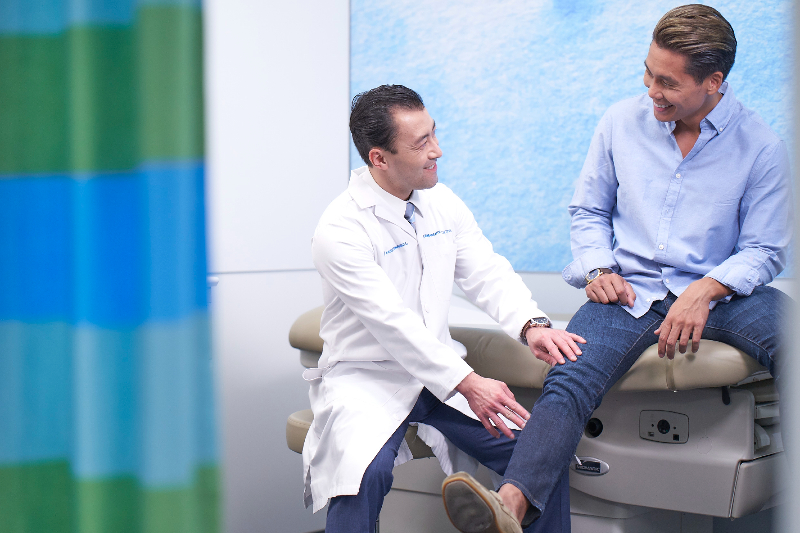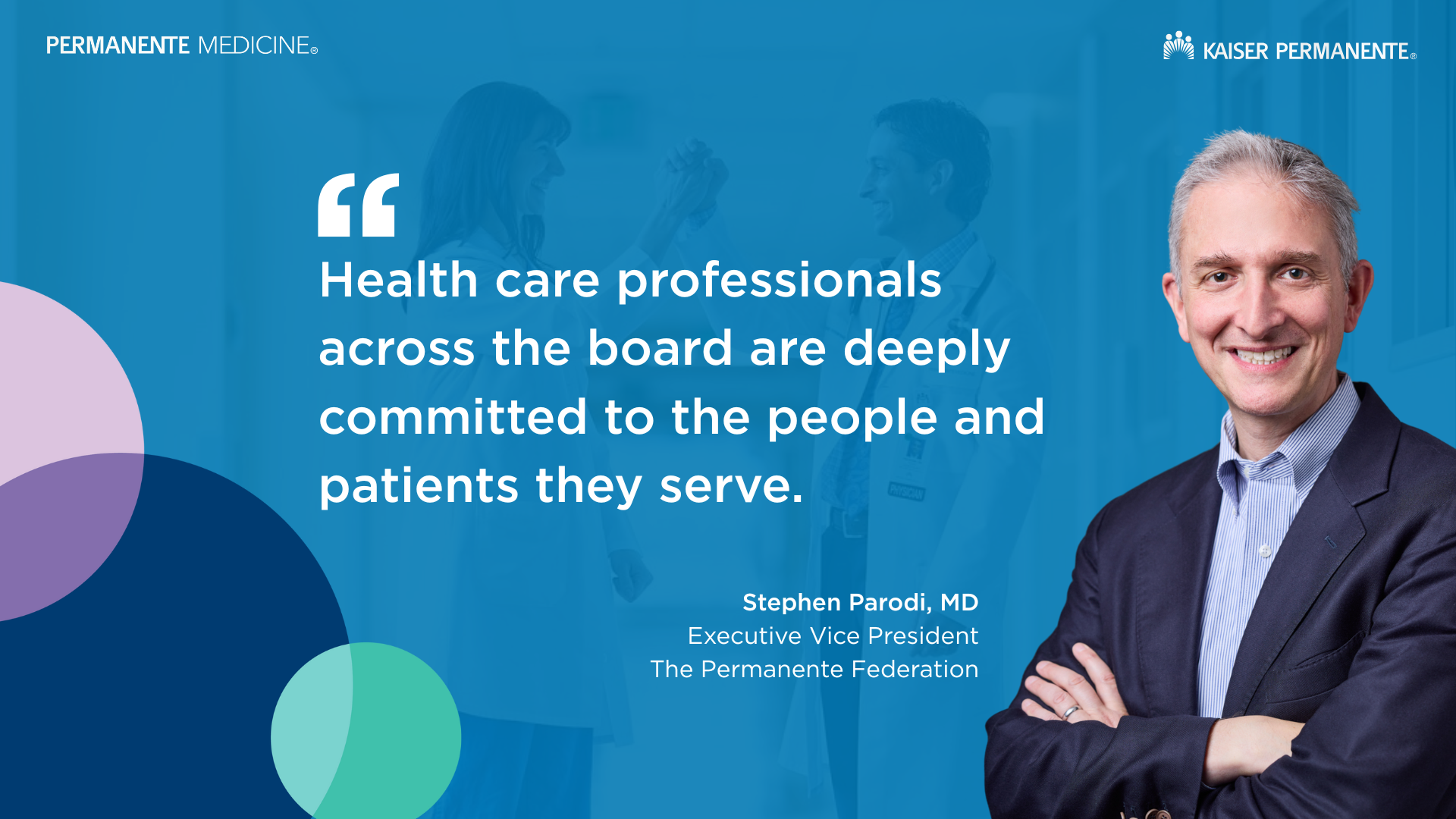Explore valuable lessons learned from Permanente physicians in 2025's rapidly changing health care landscape.

When physicians establish trust and caring, patients are better able to receive news.
Preserving the doctor-patient relationship
By Jennifer Weiss, MD

When I first became a physician in 1997, the climate of health care was entirely different than it is today. Back then, when I was just at the beginning of my journey as a young surgeon, the ultimate aspiration for any physician was to forge meaningful relationships with their patients.
At that time in health care, physician-led care fostered the physician-patient relationship. Other members of the health care team valued this relationship as well.
As private practice has become less common and integrated health care the norm, Kaiser Permanente has been at the forefront of the team-based approach to patient care. Medical care in a large organization could become depersonalized and cold if we are not extremely careful to protect the relationship between patients and physicians — and all clinicians.
Valuing connection to the patient
As physicians are increasingly burdened with documentation, paperwork, and administrative tasks, face time with patients has become a scarce and valued commodity. I am blessed to have dear friends who are physicians of all specialties, from pediatricians and urgent care physicians to the most specialized surgeons and proceduralists. We all seem to agree upon one thing: connection with our patients and their families reinvigorates us and recharges us each and every time.
When physicians establish trust and caring, patients are better able to receive news, even when it is not favorable. When we achieve affection and connection, patients can complete tasks, share in decision-making, and adhere to recommendations. This literally improves outcomes and keeps people — both patients and their doctors — healthier.
We all seem to agree upon one thing: connection with our patients and their families reinvigorates us and recharges us each and every time.
An integrated health care system, such as Kaiser Permanente, provides unexpected opportunities to enhance the physician-patient relationship. The medical group that I belong to is committed to an approach known as “Practice Support,” which examines the best ways to support physicians and clinicians to create an environment that maximizes physician time with patients. Teams of nurses and medical assistants help manage messages for appointments and forms. Other teams evaluate the flow and efficiency of our clinics and operating rooms. These efforts are designed to free up time for our doctors to spend with their patients, and for our patients to spend with their doctors.
Related story: “‘Physician’ not ‘provider’ is better for doctor and patient”
Benefits of an integrated system for patient care
As the regulatory demands of health care have increased, the ability to “hang a shingle” and practice medicine in the way my father was able to has become much more challenging. I made the intentional decision to join Kaiser Permanente midway through my career to reap the benefits that keep me in the role of physician and surgeon rather than “paperwork-filler-outer.”
A patient-centered, integrated care system, no matter the size, can better support patients and physicians. It allows doctors to focus on medical decisions, genuine healing conversations, and establishing rapport — sometimes virtually — with our patients and their families. By working together, medical assistants, nurses, nurse practitioners, physician assistants, and many others can facilitate faster access to care and help patients get more focused, purposeful attention from their physicians.
No matter how many fancy boardrooms I visit, the most gratifying moments in my career take place in the operating room and the exam room, just me and my patients. After my patients have fought the traffic, found the parking garage, made their way to the waiting room, and arrive at my office — full disclosure, I sometimes run late myself — I believe they deserve my full attention.
Once we forge a relationship, I am continuously surprised at the lengths many of my patients will go to maintain continuity of care with me. I too feel the benefit of our relationship as I work my best to heal and connect with the people who have placed their trust in me.
It is my hope, prayer, expectation, and prediction that the changes throughout hospitals and doctors’ offices will continue to amplify and foster the physician-patient relationship as we move forward on the path that is health care in 2023.
Jennifer Weiss, MD, is an orthopedic surgeon with Southern California Permanente Medical Group, based at Kaiser Permanente Los Angeles Medical Center. She serves as clinical lead for pediatric orthopedics in Kaiser Permanente in Southern California and leads People and Culture on the SCPMG Regional Surgical Services Team. She is also communications cabinet chair for the American Academy of Orthopaedic Surgeons. Connect with her on Twitter @mymomthesurgeon.


